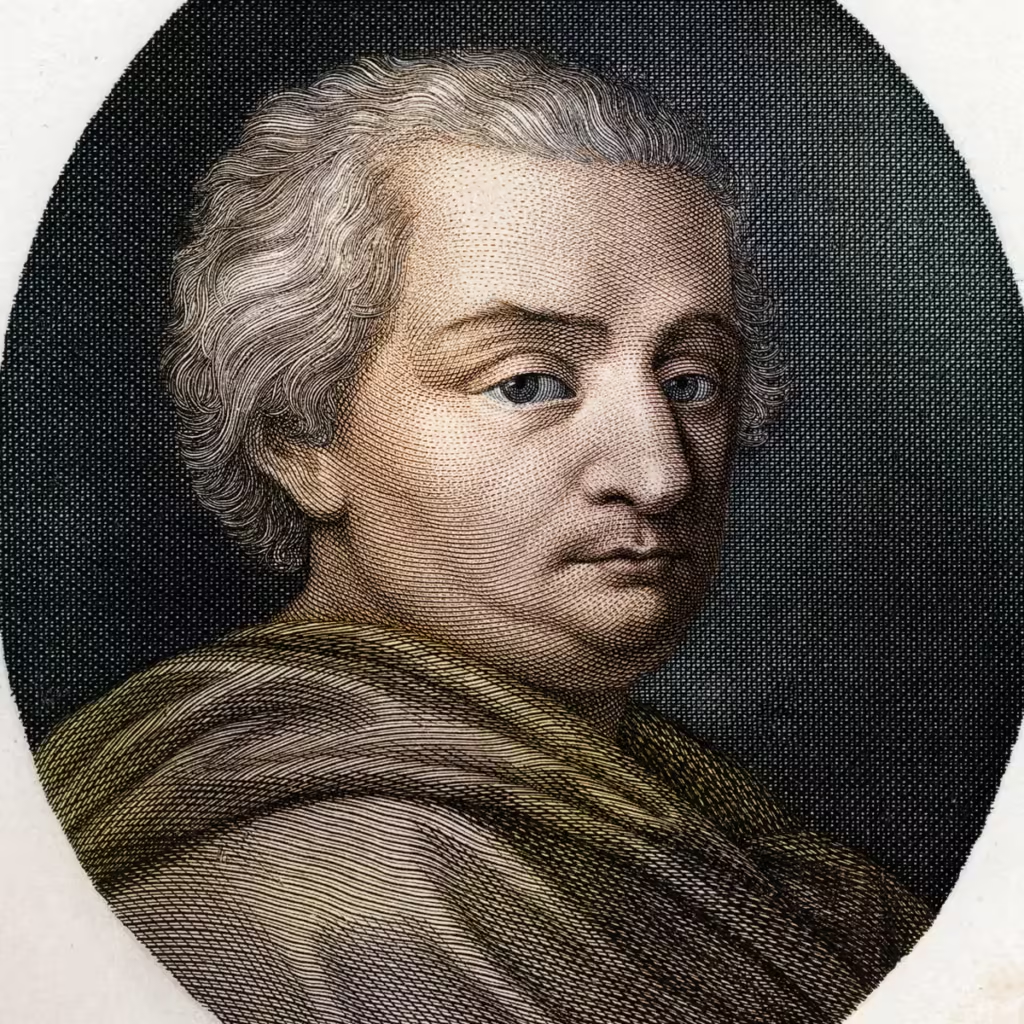
Table of Contents
Who Was Cesare Beccaria?
Cesare Beccaria was a renowned Italian criminologist, philosopher, and economist, best known for his groundbreaking work in criminal justice reform. In the early 1760s, Beccaria helped establish the “Academy of Fists,” an intellectual society focused on economic, political, and administrative reform. His most famous contribution came in 1764 with the publication of “On Crimes and Punishments,” a seminal essay that challenged the prevailing criminal justice system and advocated for a more rational and humane approach to punishment.
Early Life
Born on March 15, 1738, in Milan, Italy, Cesare Beccaria came from an aristocratic family of modest means. He received his primary education at a Jesuit school in Parma, which he later described as oppressive, stifling the development of human feelings. However, Beccaria excelled in mathematics despite his frustrations with the school’s rigid environment. He later attended the University of Pavia, where he earned a law degree in 1758.
Beccaria’s personal life was marked by emotional turbulence, including mood swings, social shyness, and periods of both enthusiasm and lethargy. In 1760, he became engaged to Teresa Blasco, a union initially opposed by her family. The couple eloped and later had three children.
Beccaria formed close friendships with Pietro and Alessandro Verri, and together they founded the “Academy of Fists,” a group committed to Enlightenment ideals and reforms. Through this collaboration, Beccaria was introduced to the works of French and British Enlightenment thinkers, which deeply influenced his own writings. His first published essay, “On Remedies for the Monetary Disorders of Milan,” appeared in 1762.
Criminal Justice Reform
Beccaria’s most influential work, “On Crimes and Punishments,” was published anonymously in 1764 due to fears of backlash. The treatise was a thorough critique of the existing legal system, which Beccaria viewed as barbaric and outdated. His ideas quickly gained international attention, with figures such as Catherine the Great, Thomas Jefferson, and John Adams endorsing his work.
Beccaria’s theories were based on three core principles: free will, rationality, and manipulability. He believed that individuals, acting out of rational self-interest, could be deterred from committing crimes if the punishment was severe enough to outweigh the benefits of the crime. In his view, the purpose of law was to maintain the social contract and serve the greater good of society.
In “On Crimes and Punishments,” Beccaria called for reforms to the criminal justice system, emphasizing fair and proportionate punishment. He advocated for the protection of both criminals’ and victims’ rights, a novel idea at the time. His work also laid out roles for the judiciary and offered strategies for crime prevention.
Beccaria’s ideas had a lasting impact on criminal justice, influencing legal reforms across Europe and North America. His advocacy for rational punishment and humane treatment of criminals continues to be a foundational principle in modern legal systems.
Economics
In addition to his deep interest in criminal law, Cesare Beccaria was equally captivated by economics. In 1768, he was appointed to the Chair of Public Economy and Commerce at the Palatine School in Milan, where he also lectured for the following two years. Drawing from these lectures, Beccaria authored an economic analysis titled Elements of Public Economy, which introduced pioneering discussions on subjects such as the division of labor. This work was posthumously published in 1804, a decade after Beccaria’s death.
Beccaria’s engagement with economics extended to his role as a member of the Supreme Economic Council of Milan. This public position allowed him to pursue his longstanding goal of economic reform, a commitment he had initially expressed with “the academy of fists” many years prior. During his tenure, Beccaria concentrated on issues pertaining to public education and labor relations. He also authored a significant report on the measurement systems that ultimately influenced France’s adoption of the metric system.
Throughout his career in economics, Beccaria made substantial contributions that paved the way for later theorists, including Thomas Malthus. However, he did not achieve the same level of acclaim in economics as he did in criminal justice. Nevertheless, in 1790, while continuing his work in economics, Beccaria participated in a committee advocating for civil and criminal law reform in Lombardy, Italy.
Death and Legacy
In the later years of his life, Beccaria became disillusioned by the tumultuous events of the French Revolution, leading him to withdraw from his family and friends. He passed away on November 28, 1794, in his native Milan.
Following his death, Beccaria’s ideas resonated across France and England. Speculation arose regarding whether his recent silence on criminal justice issues indicated he had been suppressed by the British government. In reality, Beccaria, who struggled with intermittent bouts of depression and misanthropy, had chosen to retreat into silence.
As a pioneer in criminology, Beccaria’s influence during his lifetime was profound, notably shaping the rights enshrined in the U.S. Constitution and the Bill of Rights. His seminal work, On Crimes and Punishments, served as a foundational text for the founding fathers.
The theories articulated in Beccaria’s treatise continue to have a significant impact today. Contemporary policies influenced by his ideas include truth in sentencing, prompt punishment, and the abolition of the death penalty in several U.S. states. While many of Beccaria’s concepts remain widely embraced, some continue to provoke spirited debate even more than two centuries after his death.
